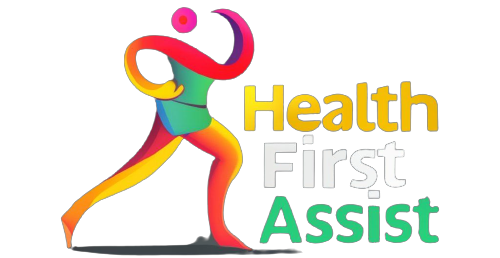OCD Obsessive Compulsive Disorder
Obsessive-compulsive disorder, or OCD, involves distressing and unwanted thoughts combined with rituals performed to try to manage the anxiety caused by these thoughts. While once believed to simply be an eccentric personality quirk, we now understand OCD is a serious mental health condition affecting millions worldwide. In this article, I will provide an overview of OCD – what it entails, potential causes, common symptoms, diagnosis, and available treatment methods for regaining control over obsessive thoughts and compulsions. Let’s begin with examining exactly what OCD is.
What is Obsessive-Compulsive Disorder?
OCD (obsessive-compulsive disorder) is characterized by recurring obsessive thoughts and compulsive behaviors aimed at neutralizing anxiety caused by the obsessions. However, rituals provide only temporary relief and the cycle repeats. Obsessions are persistent ideas, urges or images that seem uncontrollable and cause marked stress. Compulsions are behaviors or mental acts completed to reduce anxiety brought on by obsessions, such as washing hands excessively or checking locks repeatedly.
Main Types of OCD Symptoms
The two primary elements of OCD include:
Obsessions
- Contamination fears
- Harming impulses (aggressive or forbidden thoughts)
- Need for symmetry or exactness
- Religious, sexual or somatic obsessions
Compulsions
- Cleaning/washing rituals
- Repeating routines
- Checking behaviors
- Counting compulsions
- Collecting/organizing items
Causes and Risk Factors of OCD
While the causes of OCD are not fully understood, biological and environmental influences likely contribute. Risks include:
- Genetic predisposition
- Brain abnormalities in areas affecting serotonin levels
- Conditions involving basal ganglia impairment
- Traumatic or stressful life events during childhood
Recognizing OCD usually involves a complex interplay between neurobiology and life experiences. Care considers both medical and psychological aspects.
Symptoms of Obsessive-Compulsive Disorder
Obsessions can center around topics of contamination, harm, unacceptable/taboo thoughts, need for symmetry, or somatic fears. Compulsions like repeatedly cleaning, ordering, checking, counting, or requesting reassurance alleviate anxiety temporarily but not permanently. Symptoms profoundly impair daily functioning for mild to severe OCD.
Diagnosing OCD (obsessive-compulsive disorder)
An evaluation with a mental health professional helps diagnose OCD accurately. The diagnostic process includes discussing one’s personal and family history, symptom patterns, duration and frequency of obsessions and compulsions, and impact on life quality. No medical test confirms OCD, but assessments rule out other possibilities as well. Partnership between individuals and their clinician proves most valuable towards recovery.
Treatment Options for Obsessive-Compulsive Disorder
Effective, evidence-based OCD management incorporates both cognitive-behavioral therapy and medications in many cases. Treatment depends on each individual. Options include:
Therapy
Techniques like Exposure and Response Prevention (ERP) help confront feared situations without compulsions gradually, Extinguishing associations. Cognitive techniques restructure unhelpful thought patterns.
Medications
Selective Serotonin Reuptake Inhibitors (SSRIs) minimize OCD symptom severity when coupled with psychotherapy targeting underlying causes and learning coping strategies. Medications require ongoing monitoring.
Living with and Managing OCD
While OCD presents lifelong challenges, effective self-management strategies boost treatment gains. Things like relaxation skills, maintaining therapy gains against setbacks, practicing acceptance of uncertainty, utilizing social support systems and identifying early warning signs of worsening symptoms all play roles in leading a high functioning life beyond OCD.
Conclusion
For those struggling with persistent obsessions and compulsions dominating daily life, help exists. OCD proves highly treatable when accurately diagnosed and properly addressed via cognitive-behavioral therapy, medication when indicated, self-care and ongoing professional guidance. While not cured, OCD releases thousands from imprisoned mental torture each year into manageable recovery. Seeking treatment provides hope that freedom from debilitating fear is very possible.
FAQs
Q1: Is Obsessive-Compulsive Disorder hereditary?
Family histories indicate genetics involve vulnerability to OCD, though environmental triggers also contribute to the full manifestation of the disorder. Having a first-degree relative with OCD doubles one’s risk. So nature and nurture interact.
Q2: When should OCD (obsessive-compulsive disorder) be treated?
Persistent symptoms interfering with relationships, work/school or causing severe internal distress for at least one hour daily warrant evaluation. Faster intervention yields better prognoses though OCD can develop at any age and receive effective help.
Q3: What’s the difference between Obsessive-Compulsive Disorder and being a perfectionist?
OCD involves disabling anxiety if rituals aren’t completed whereas perfectionism involves extreme standards without distress. Perfectionists function normally if unable to organize perfectly whereas OCD sufferers cannot.
Q4: Can OCD (obsessive-compulsive disorder) ever go away?
With consistent ERP therapy and medication compliance, if prescribed, OCD remits into full or partial remission in 60-90% of cases. Maintenance strategies prevent relapses. While flare-ups may occur, OCD proves manageable long term for the vast majority through supported self-care skills.
Q5: What lifestyle changes helpObsessive-Compulsive Disorder?
Stress management, regular exercise and sleep, social support avoiding triggers, relaxing routines, balanced nutrition, mindfulness and using therapy techniques whenever obsessional thoughts invade create an overall supportive environment boosting formal treatment significantly over time.
Related Topics
- Lose Weight Fast: Warning and Proven Methods
- Anxiety Disease Uncovered: Insights and Solutions for Mental Well-Being
- Insomnia: Understanding Causes, Symptoms, and Treatments
- Lewy Body Dementia: A Guide to the Mysterious Disease
- Managing Anxiety: A Guide to Keep Calm in Anxious Times
Cardio FLEX Reviews: Unveiling the Truth about Cardiovascular Health Support
Cortexi Reviews – Unveiling the Power of the Ultimate Nootropic Formula
Gluconite Review – A Comprehensive Analysis of Safety and Effectiveness
Ikaria Lean Belly Juice Reviews – The Ultimate Weight Loss Solution
Java Burn Reviews: A Revolutionary Approach to Boosting Metabolism
Liv Pure Reviews: to Achieve Your Weight Loss Goals
ProDentim Reviews: Solution for Dental and Gum Problems
Puravive Reviews: A Detailed Analysis of Discovering the Essence
Quietum Plus Reviews: Unlocking the Secrets to Optimal Ear Health and Clear Hearing
Sugar Defender Reviews: The Importance of Blood Sugar Management
Sumatra Slim Belly Tonic Reviews: Discover its Power for Healthy Weight Loss


[…] OCD Obsessive Compulsive Disorder […]